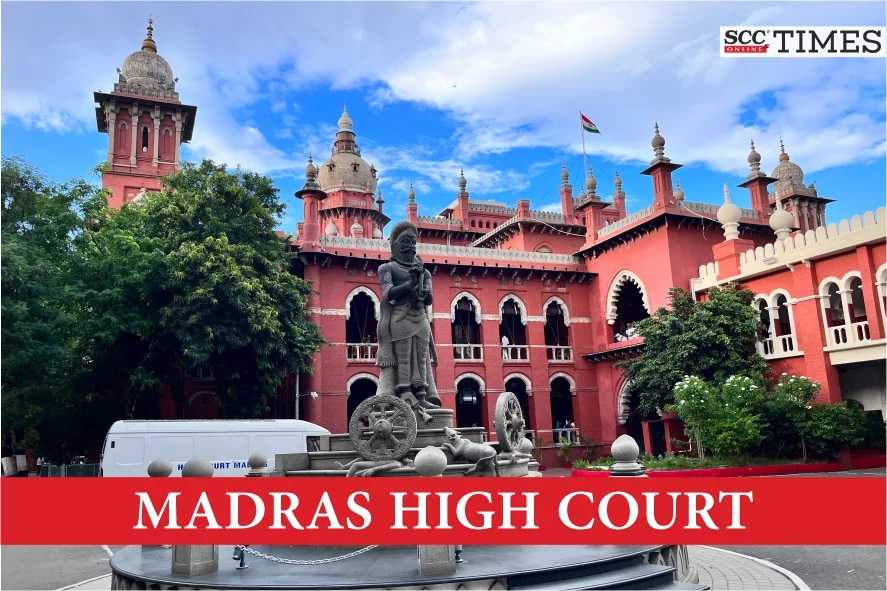Madras High Court: In a writ petition filed against the order passed by the Assistant Commissioner (ST)(FAC), and quash the demand of tax of Rs.25,88,468/- each under Central Goods and Services Tax (CGST) and SGST along with interest and penalty as the same being arbitrary, without the authority of law, passed in violation of the principles of natural justice and beyond the scope of the show cause notice, Senthilkumar Ramamoorthy, J. has set aside the impugned order only insofar as defect no.3 relating to reversal of Input Tax Credit for the value of credit notes issued by the supplier is concerned. Further, the Court remanded defect no. 3 for re consideration by the original authority. The Court also directed the assessing officer to issue a fresh order within three months from the date of receipt of this order, after providing a reasonable opportunity to the petitioner, including a personal hearing.
Background
The petitioner received show cause notice dated 12-01-2024 calling on him to show cause regarding six defects. The petitioner replied to such show cause notice on 22-01-2024 and 14-02-2024. The impugned order was issued thereafter.
Contentions
The petitioner submitted that defect no.3 pertains to reversal of Input Tax Credit in respect of credit notes issued by the supplier. By referring to sub-section (3) of Section 15 of CGST Act, 2017, the petitioner submitted that the value of supply would not include a discount only if the conditions prescribed in clauses (a) or (b) of sub-section (3) are satisfied. According to him, the case at hand does not fall within the scope of sub-section (3). Consequently, he contended that the credit notes issued by the supplier were financial credit notes. He also refers to the Circular dated 07-03-2019. Hence, the recipient / taxpayer is not liable to reverse Input Tax Credit to the extent of the value of credit notes. The discount offered by the supplier was erroneously construed as a service provided by the purchaser to the supplier. Thus, the impugned order calls for interference on this issue.
The Assistant Commissioner pointed out that the petitioner has filed this writ petition only insofar as defect no.3 is concerned. As regards other defects, the petitioner has carried the matter in appeal before the appellate authority. Thus, such practice should not be encouraged. Therefore, the petitioner should be relegated to the statutory remedy.
Analysis and Decision:
The Court noted that Section 15(3) of CGST Act, 2017 provides for a reduction in the value of supply, on account of a discount, if such discount has been duly recorded in the invoice issued in respect of such supply or if such discount is established in terms of an agreement entered into either before or at the time of supply although the supply may be subsequent to such agreement.
Thus, the Court said that the petitioner has prima facie established that neither of the requirements under sub-section (3) were satisfied. In such an event, the supplier would be liable to pay tax on the full value of supply.
After examining the impugned order, the Court said that the assessing officer concluded that the taxable person is providing a service to the supplier while taking the benefit of a discount by facilitating an increase in the volume of sales of such supplier. This conclusion is ex facie erroneous and contrary to the fundamental tenets of GST law. Therefore, this conclusion warrants interference, and this issue requires re-consideration.
The Court said that the exercise of jurisdiction under Article 226 is discretionary and subject to self-imposed fetters. One such fetter is when an efficacious alternative remedy is available. However, the existence of an alternative remedy is a material consideration, but not a bar to the exercise of jurisdiction.
The Court said that because the other issues require re-appraisal of evidence, the petitioner has approached the appellate authority in respect thereof. As regards this issue, since it is a pure legal issue, the petitioner has chosen to approach this Court.
The Court further said that the conclusion is ex facie erroneous on this issue, and the appellate authority under applicable GST statutes does not have the power to remand.
Therefore, notwithstanding the fact that the petitioner had approached the appellate authority in respect of other issues, the Court agreed to exercise jurisdiction, even when a writ petition would not ordinarily be entertained once the person aggrieved has chosen to challenge other issues in an order before an appellate authority.
The Court set aside the impugned order only insofar as defect no.3 relating to reversal of Input Tax Credit for the value of credit notes issued by the supplier is concerned.
Further, the Court remanded defect no. 3 for re consideration by the original authority. The Court also directed the assessing officer to issue a fresh order within three months from the date of receipt of this order, after providing a reasonable opportunity to the petitioner, including a personal hearing.
[Tvl. Shivam Steels v. Assistant Commissioner, 2024 SCC OnLine Mad 2749, decided on 25-06-2024]
Advocates who appeared in this case :
For Petitioner: Advocate G. Natarajan
For Respondent: C. Harsha Raj, AGP (T)






